US federal appeals court holds hearing over travel ban
A federal appeals court in the United States has hold a hearing over the fate of President Donald Trump’s controversial travel ban, which blocks the entry of people from seven Muslim-majority countries.
On Tuesday evening, the 9th US Circuit Court of Appeals in San Francisco, northern California, began to hear oral arguments from lawyers with Justice Department and opposing attorneys for the states of Washington and Minnesota about whether or not the ban is constitutional or whether it can be restored.
A lawyer for the Justice Department and an attorney representing the states of Washington and Minnesota, which are suing the administration over the immigration order, presented their arguments by telephone before a three-judge panel.
The judges pressed the government lawyer whether the administration's argument was backed by evidence that people from the seven Muslim countries posed a national security threat.
The move was prompted after law professors, tech companies and former high-ranking national security officials joined a legal campaign a day earlier to keep the measure suspended despite Justice Department lawyers calling for the restoration of the ban.
"The Executive Order is a lawful exercise of the President's authority over the entry of aliens into the United States and the admission of refugees," Justice Department lawyers wrote.
Trump on January 27 signed an executive order that imposed a temporary travel ban on citizens from Iran, Iraq, Libya, Somalia, Sudan, Syria, and Yemen and placed an indefinite ban on Syrian refugees. The move also suspended the admission of all refugees for 120 days.
Responding to the controversial measure, US Federal Judge James Robart issued a ruling last Friday, ordering a temporary nationwide halt to Trump’s travel ban.
However, the White House quickly defended the president’s decision as “lawful and appropriate” and said the US Justice Department would appeal to stop the judge’s order from taking effect.

Before the Tuesday hearing, the new US president defended his controversial decision, saying that he will continue fighting to uphold the ban and hopes the fight over his immigration executive order would not have to go to the Supreme Court.
"I actually can’t believe that we’re having to fight to protect the security, in a court system, to protect the security of our nation," Trump said, adding that the Daesh Takfiri terrorist (ISIL) group wants "to infiltrate the United States and other countries through the migration... And then we’re not allowed to be tough on the people coming in? Explain that one."
Over the past week, world’s major cities have been the scene of massive protest rallies against Trump’s executive order.
Mikati demands Israel's withdrawal from south Lebanon
Yemeni army strikes Israeli military sites with drones
‘Clock ticking’: UNRWA slams unjustifiable killing of children in Gaza
BP to be sued in Britain for supplying oil to Israel
VIDEO | Press TV's news headlines
Israeli strikes on north Gaza hospital ‘extremely dangerous, terrifying’: Director
VIDEO | Yemen targets Tel Aviv with Palestine 2 missiles
Pezeshkian: Iran resolved to complete North-South Transport Corridor


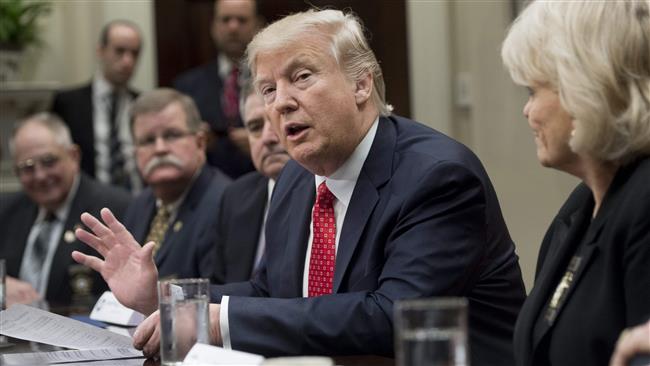


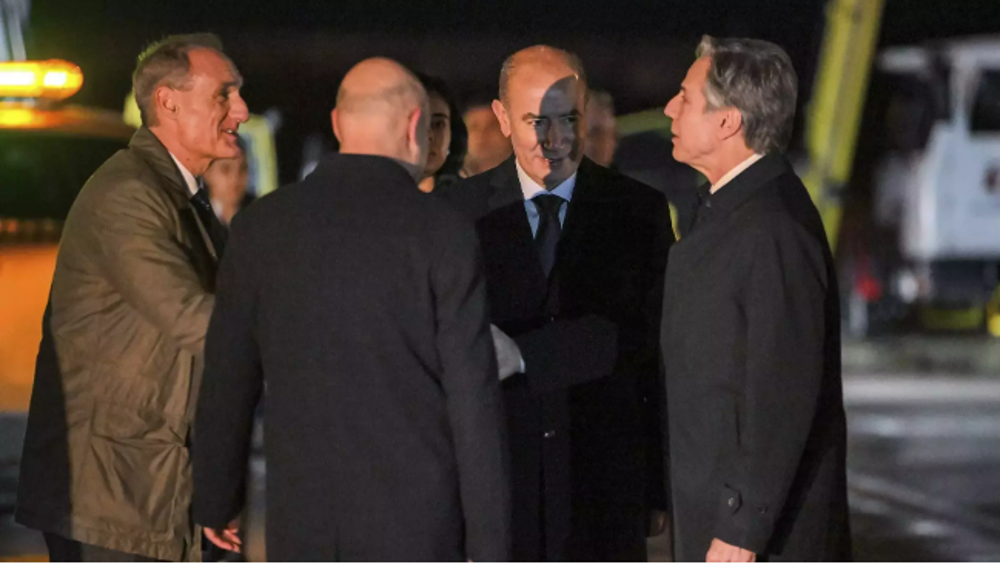



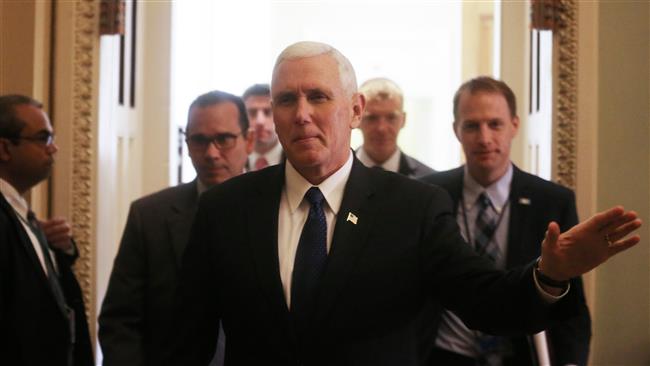
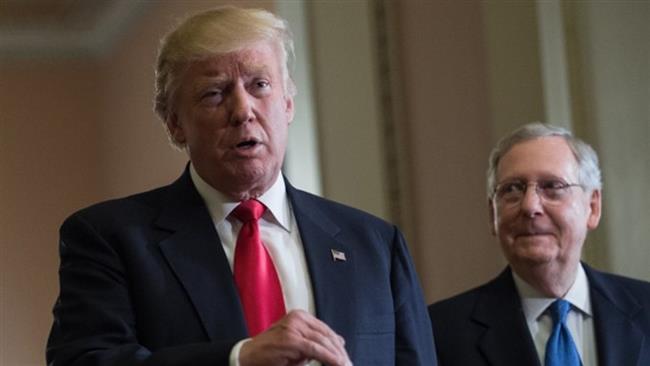
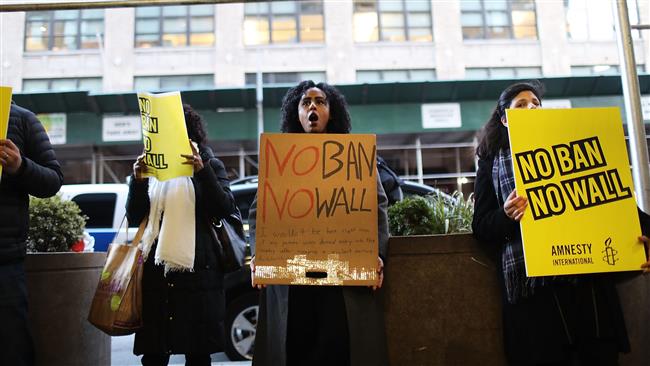
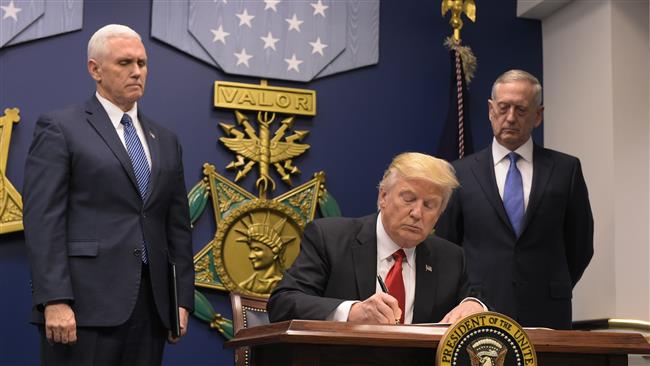
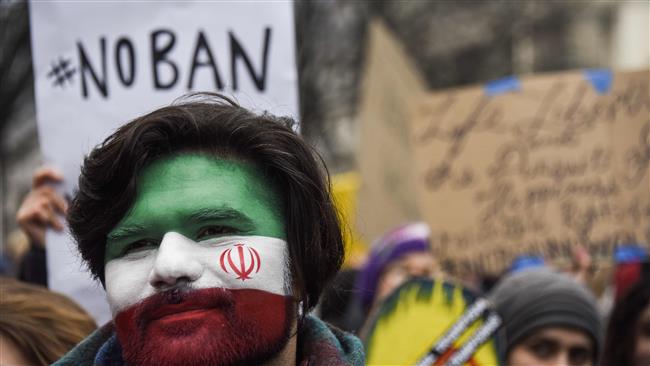

 This makes it easy to access the Press TV website
This makes it easy to access the Press TV website